
Canberra: Australia's Hidden Gem
Nestled between Sydney and Melbourne, Canberra, the capital city of Australia, offers a unique blend of natural beauty, cultural richness, and modern architecture. As one of the few planned cities in the world, Canberra boasts wide, tree-lined streets and picturesque parklands that make it a pleasure to explore on foot or by bike. Start your adventure with a visit to the Australian War Memorial, which stands as a poignant reminder of the country's history. The National Gallery of Australia and the National Museum of Australia are also must-see attractions, showcasing the diverse art, culture, and history of the nation. For those who enjoy the outdoors, Lake Burley Griffin provides a scenic backdrop for picnics, rowing, and cycling. Canberra is also home to the lively NewActon precinct, where you can enjoy a variety of dining options, from sumptuous local cuisine to international delicacies. Don't miss the chance to explore the nearby wineries of the Canberra District Wine Region, offering some of Australia's finest wines. With its perfect mix of culture, history, and nature, Canberra is an ideal destination for all types of travelers.
Local tips in Canberra
- Visit in spring (September to November) to see the city in full bloom during the Floriade festival.
- Hire a bike to explore the numerous cycling paths around Lake Burley Griffin.
- Book tickets in advance for popular attractions like the National Museum and Australian War Memorial.
- Visit the local markets, such as the Old Bus Depot Markets, for unique souvenirs and local crafts.
Neighbourhoods in Canberra
Canberra: Australia's Hidden Gem
Nestled between Sydney and Melbourne, Canberra, the capital city of Australia, offers a unique blend of natural beauty, cultural richness, and modern architecture. As one of the few planned cities in the world, Canberra boasts wide, tree-lined streets and picturesque parklands that make it a pleasure to explore on foot or by bike. Start your adventure with a visit to the Australian War Memorial, which stands as a poignant reminder of the country's history. The National Gallery of Australia and the National Museum of Australia are also must-see attractions, showcasing the diverse art, culture, and history of the nation. For those who enjoy the outdoors, Lake Burley Griffin provides a scenic backdrop for picnics, rowing, and cycling. Canberra is also home to the lively NewActon precinct, where you can enjoy a variety of dining options, from sumptuous local cuisine to international delicacies. Don't miss the chance to explore the nearby wineries of the Canberra District Wine Region, offering some of Australia's finest wines. With its perfect mix of culture, history, and nature, Canberra is an ideal destination for all types of travelers.
When is the best time to go to Canberra?
Iconic landmarks you can’t miss
National Museum of Australia
Explore Australia's rich history and culture at the National Museum of Australia, a captivating destination in Acton perfect for all ages.

National Arboretum Canberra
Explore the National Arboretum Canberra, a breathtaking nature preserve showcasing Australia's diverse plant life and stunning landscapes.
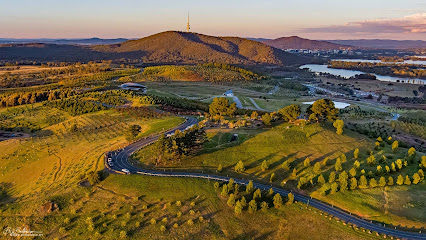
National Zoo & Aquarium
Discover the enchanting world of wildlife and aquatic life at the National Zoo & Aquarium in Yarralumla, a top-rated family-friendly destination.
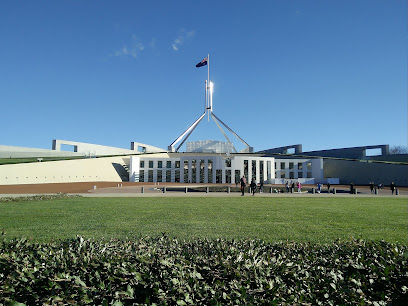
Old Parliament House
Explore the rich history of Australian democracy at Old Parliament House, a captivating museum in the heart of Canberra.
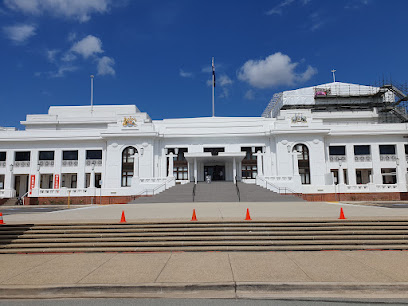
Mount Ainslie Lookout
Discover breathtaking views of Canberra at Mount Ainslie Lookout, a top destination for nature lovers and city explorers alike.
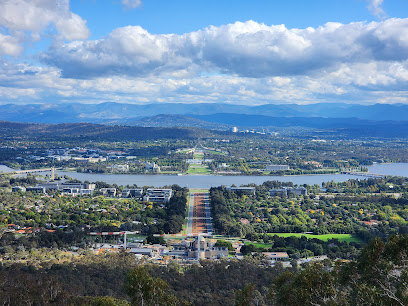
Cockington Green Gardens
Explore Cockington Green Gardens in Nicholls, ACT - a whimsical world of miniature architecture and beautiful landscapes perfect for family outings.
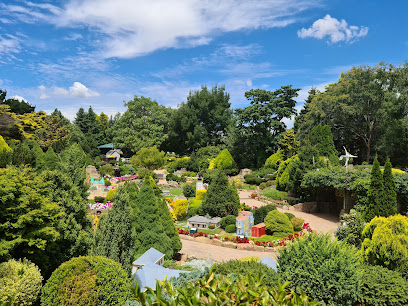
National Capital Exhibition
Explore the National Capital Exhibition in Canberra for a captivating journey through Australia's history, culture, and the vision behind its capital city.
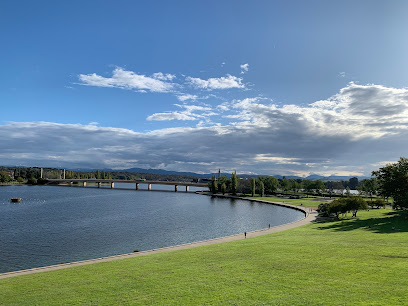
Black Mountain Nature Reserve
Experience the breathtaking beauty and tranquility of Black Mountain Nature Reserve in Canberra, a top destination for nature lovers and outdoor adventurers.
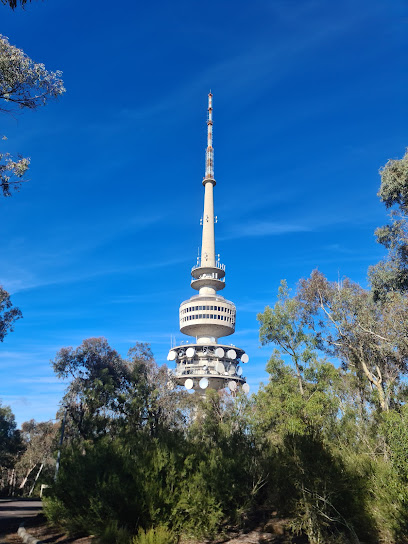
Parliament House
Discover the architectural beauty and political significance of Parliament House, the heart of Australia's democracy in Canberra.
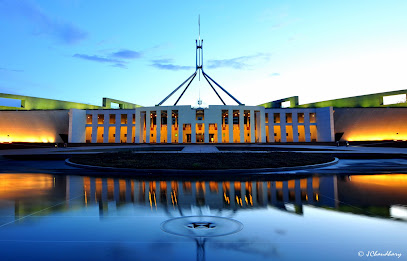
Commonwealth Park
Explore the serene beauty of Commonwealth Park, a lush green haven in Canberra perfect for relaxation, picnics, and cultural experiences.
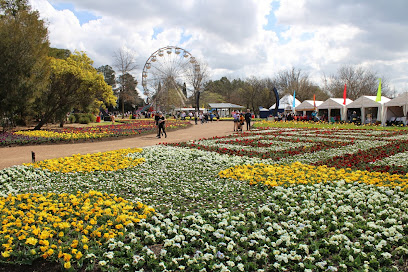
Mount Stromlo Observatory
Discover the cosmos at Mount Stromlo Observatory, a top-rated tourist attraction in the Australian Capital Territory with breathtaking views and educational experiences.
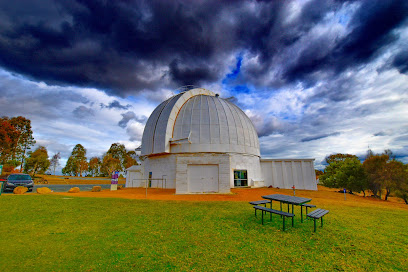
Civic Square
Discover Civic Square in Canberra: A vibrant pedestrian zone filled with culture, community events, and a perfect blend of shopping and dining experiences.
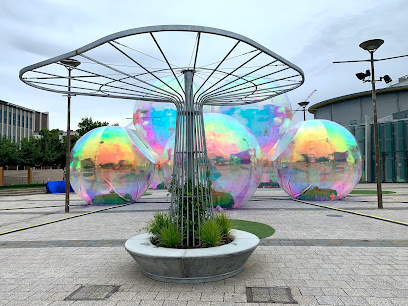
Mount Taylor Nature Reserve
Discover the breathtaking beauty of Mount Taylor Nature Reserve, a tranquil escape into nature with stunning views and diverse wildlife in Canberra.
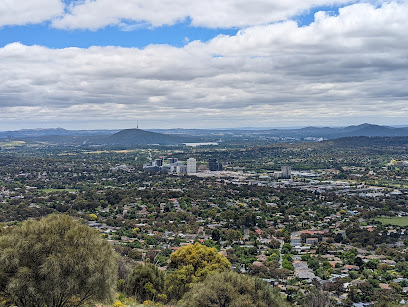
Canberra Walk-In Aviary
Discover the enchanting world of exotic birds at the Canberra Walk-In Aviary, a must-visit nature haven in Australia's capital.
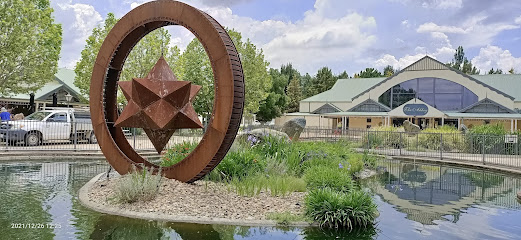
Lennox Gardens
Experience the serene beauty of Lennox Gardens in Yarralumla, a perfect blend of nature, art, and tranquility for all visitors.
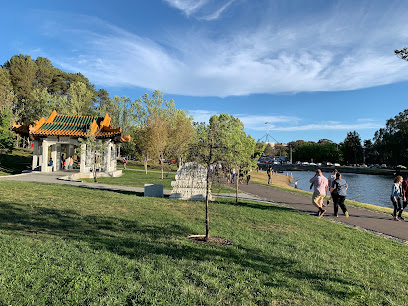
Unmissable attractions to see
Australian War Memorial
Explore the Australian War Memorial: where history, remembrance, and national pride intertwine in a powerful tribute to Australia’s heroes.
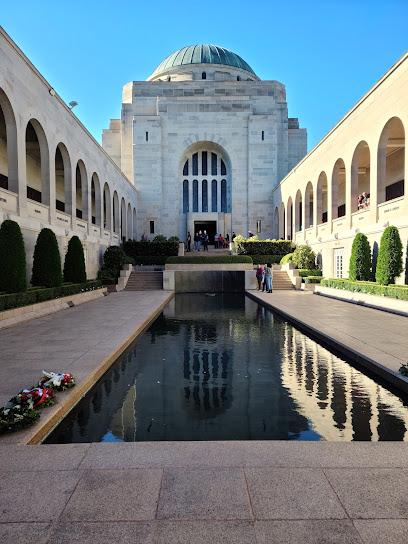
National Museum of Australia
Discover Australia’s diverse heritage at the National Museum of Australia, where history and culture come alive through extraordinary exhibits.
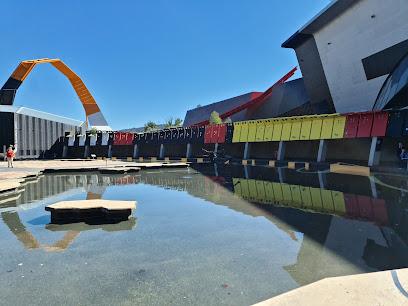
National Arboretum Canberra
Explore diverse forests & gardens, breathtaking views, and unique experiences at Canberra's National Arboretum.
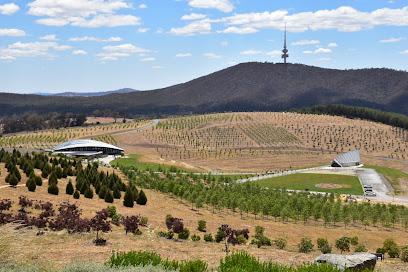
Questacon - National Science and Technology Centre
Discover the wonders of science at Questacon, Canberra's National Science and Technology Centre, where learning meets fun through interactive exhibits.
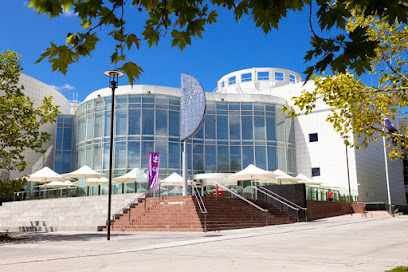
National Gallery of Australia
Discover Australia's premier art museum, showcasing a vast collection from Aboriginal masterpieces to international icons.
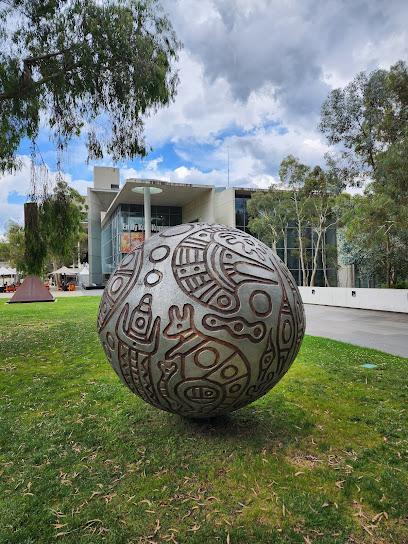
Royal Australian Mint
Discover the Royal Australian Mint in Deakin, ACT, where the art of coin-making comes to life with interactive exhibits and rich history.
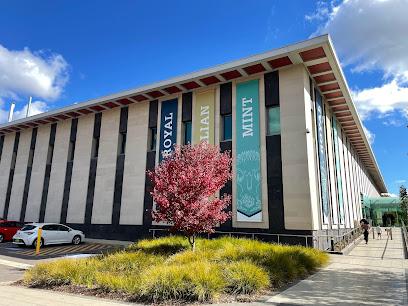
Old Parliament House
Explore Australia's political history at Old Parliament House, a captivating museum in the heart of Parkes, ACT, showcasing the nation's democratic journey.
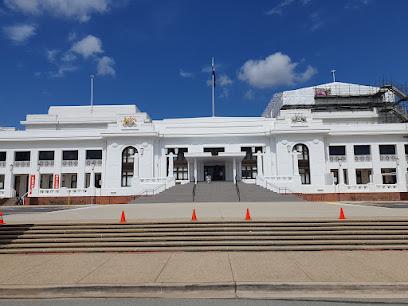
National Zoo & Aquarium
Explore the unique National Zoo & Aquarium in Yarralumla, ACT, where wildlife and marine life come together for an unforgettable family adventure.
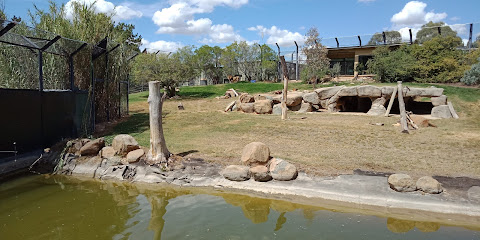
Mount Ainslie Lookout
Explore stunning panoramic views and captivating landscapes at Mount Ainslie Lookout, a premier tourist attraction in Canberra's natural beauty.
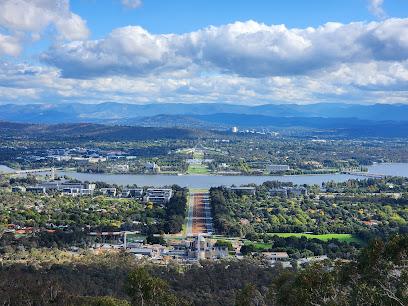
Cockington Green Gardens
Explore a world of miniatures at Cockington Green Gardens in Canberra, featuring iconic buildings from over 30 countries in a meticulously crafted setting.
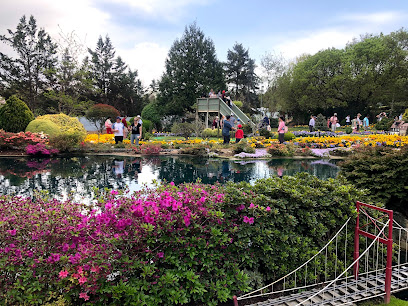
Australian National Botanic Gardens
Explore Australia's native flora at the Australian National Botanic Gardens in Canberra. Discover themed gardens, stunning views, and tranquil landscapes.
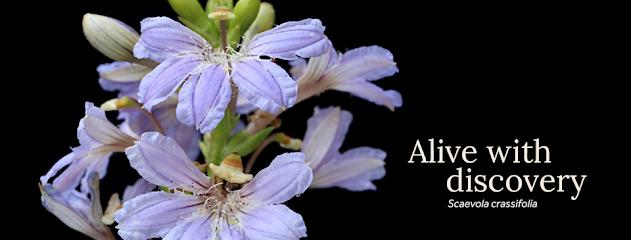
National Dinosaur Museum
Discover prehistoric wonders at Canberra's National Dinosaur Museum: Australia's largest dinosaur display with fossils, skeletons, and interactive fun.
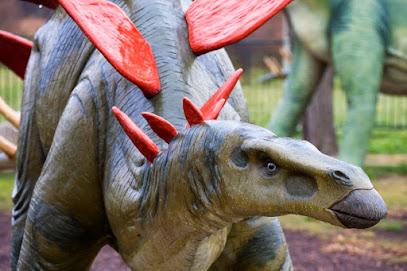
National Capital Exhibition
Discover the rich history and culture of Australia at the National Capital Exhibition, showcasing Canberra's development and significance.
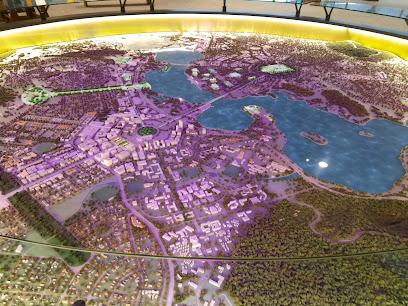
National Portrait Gallery
Explore Australia’s rich history and culture through captivating portraits at the National Portrait Gallery in Parkes, ACT.
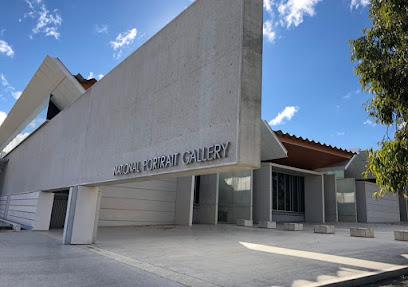
Tulip Top Gardens
Experience the beauty of spring at Tulip Top Gardens in Bywong, NSW, a floral paradise featuring vibrant tulips and tranquil landscapes perfect for relaxation.
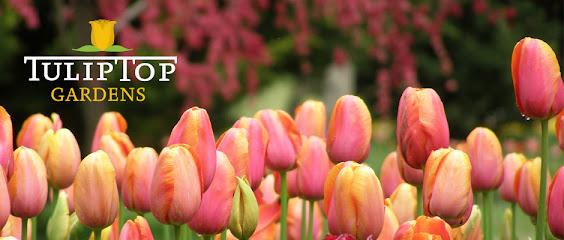
Essential places to dine
Raku
Experience exquisite Japanese cuisine at Raku in Canberra – where tradition meets innovation for an unforgettable dining adventure.
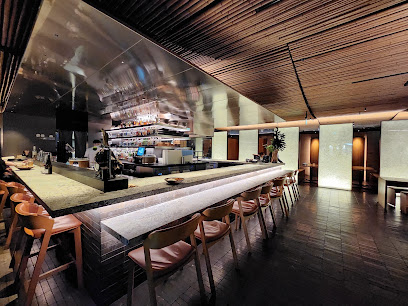
Akiba
Discover Akiba in Canberra: A vibrant Asian fusion restaurant blending traditional Japanese cuisine with modern flair.
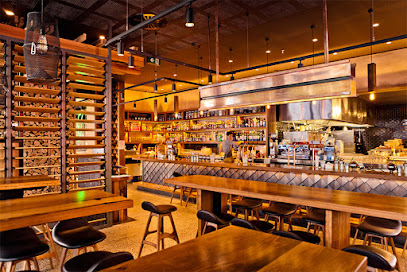
Wilma
Discover Wilma in Canberra – where barbecue meets Australian hospitality in a vibrant setting.
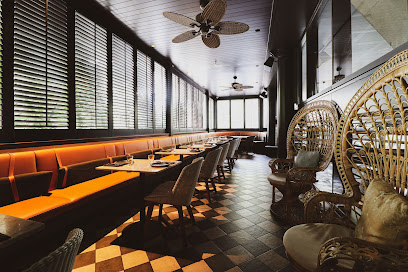
Lazy Su
Discover Lazy Su: A vibrant Pan-Asian restaurant in Braddon serving fresh, innovative dishes that celebrate the essence of Asian cuisine.
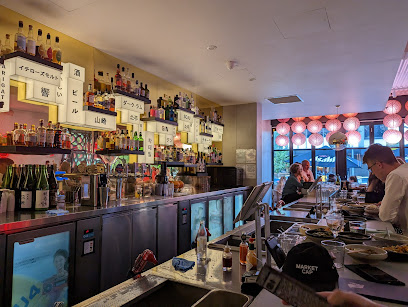
Marble and Grain
Experience premium steaks and exceptional service at Marble and Grain – Braddon's premier steakhouse offering an unforgettable dining experience.
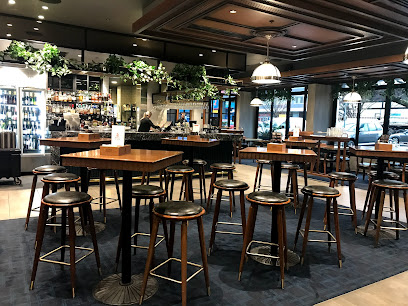
Courgette Restaurant
Discover the essence of modern Australian cuisine at Courgette Restaurant in Canberra, where seasonal ingredients meet culinary artistry.
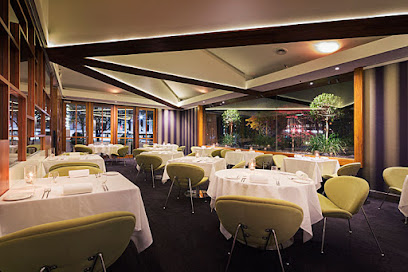
BlackFire Restaurant Canberra
Experience exquisite Mediterranean dining at BlackFire Restaurant Canberra – where every meal is a journey through flavor.
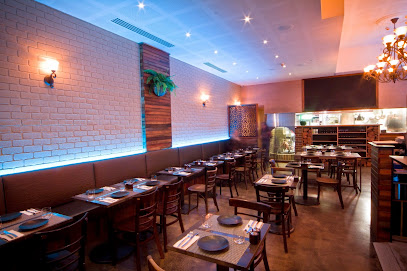
INKA Japanese restaurant
Savor exquisite Japanese flavors in Canberra's premier dining destination at INKA Restaurant.
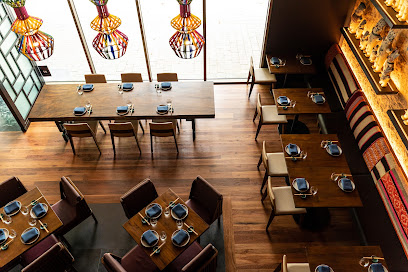
Zaab
Discover the rich flavors of South East Asia at Zaab in Braddon - where every dish tells a story.
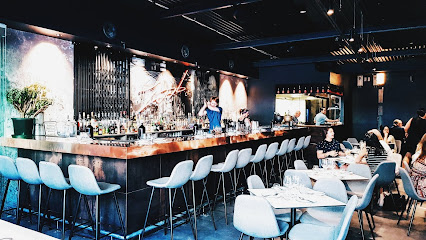
Agostinis Italian Restaurant
Discover authentic Italian flavors at Agostinis Italian Restaurant in Griffith – where every meal feels like a journey to Italy.
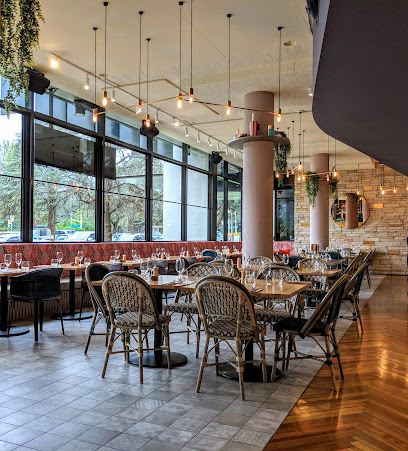
Monster Kitchen and Bar
Experience culinary creativity at Monster Kitchen and Bar in Canberra - where vegetarian delights meet vibrant dining.
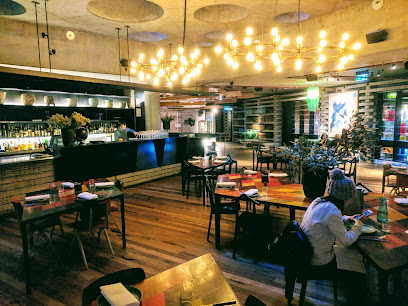
Močan & Green Grout
Discover the vibrant culinary scene at Močan & Green Grout in Canberra - where fresh ingredients meet modern Australian cuisine.
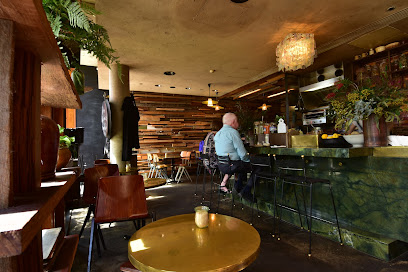
Terra Canberra
Experience the best of Australian cuisine at Terra Canberra - where local flavors meet modern dining in an inviting atmosphere.
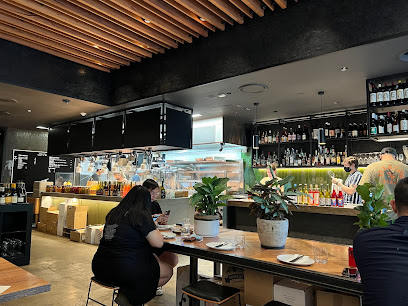
Les Bistronomes
Discover exceptional French cuisine at Les Bistronomes - where fine dining meets exquisite flavor in Campbell.
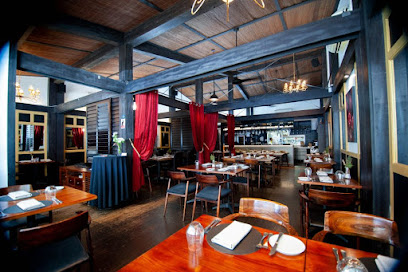
Olive at Hawker
Experience authentic Mediterranean flavors at Olive at Hawker - a must-visit Greek restaurant in Canberra's vibrant culinary scene.
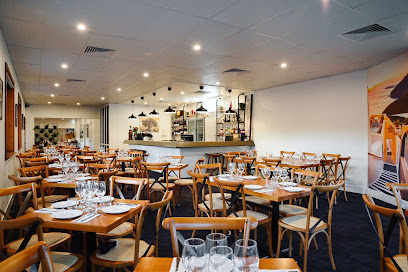
Markets, malls and hidden boutiques
Myer Canberra
Discover Myer Canberra: Your ultimate shopping destination for clothing, homewares, and unique gifts in the heart of the capital.
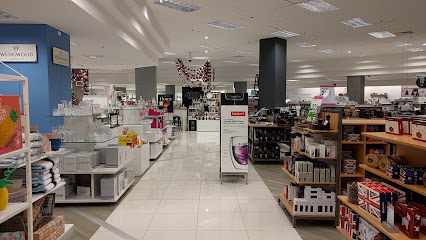
David Jones - Canberra Centre
Explore David Jones in Canberra Centre for a premium shopping experience featuring fashion, beauty products, and homewares all under one roof.
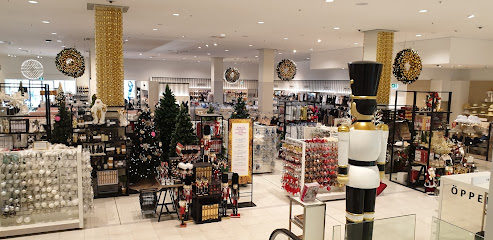
Quizzic Alley - Canberra
Explore Quizzic Alley in Canberra - A whimsical gift shop bursting with books, costumes, and creativity for all ages.
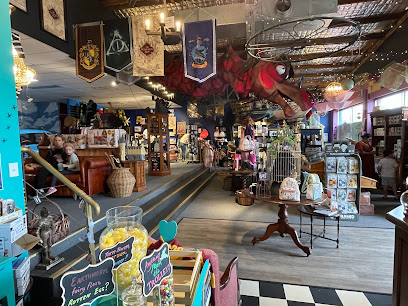
Handmade Market Canberra
Explore the Handmade Market Canberra, where local artisans bring creativity to life with unique crafts, delicious food, and a vibrant community atmosphere.
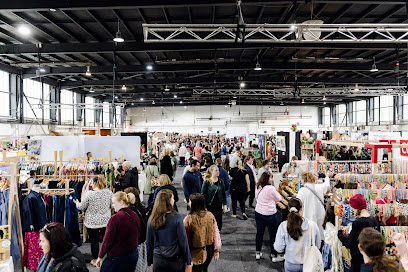
POP Canberra
Explore POP Canberra, the boutique shopping gem in Braddon featuring local artisans and unique finds that showcase the spirit of Canberra.
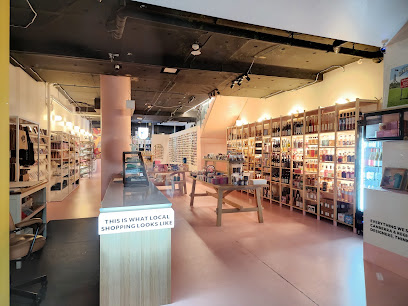
Material Pleasures
Explore sustainable fashion treasures at Material Pleasures, Fyshwick's premier used clothing store offering unique pieces for every style.
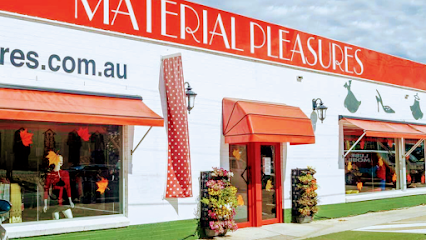
Canberra Vintage & Collectible Centre
Discover unique vintage collectibles and nostalgic treasures at Canberra Vintage & Collectible Centre in Fyshwick, a must-see for all tourists.
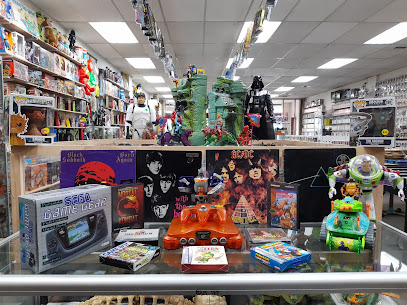
Sparrods & Co
Discover stylish footwear and exquisite leather goods at Sparrods & Co, Canberra's premier destination for fashion-forward shoppers.
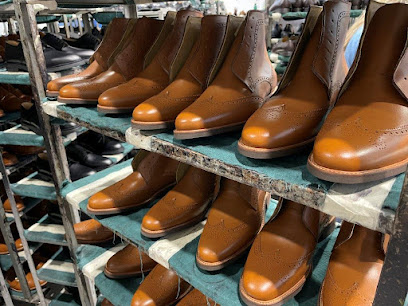
Nespresso Boutique Canberra
Experience the world of premium coffee at Nespresso Boutique Canberra, where flavor and quality come together in a stylish setting.
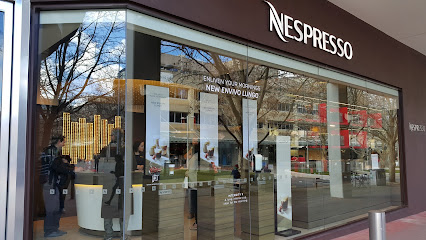
Australian Choice
Explore Australian Choice in Canberra for authentic souvenirs that showcase the beauty and culture of Australia, perfect for every traveler.
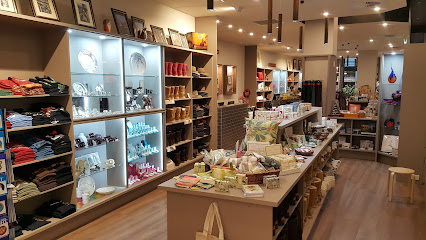
Designer Op Shop Emporium
Explore a treasure trove of vintage clothing, antiques, and unique gifts at Designer Op Shop Emporium in Fyshwick.
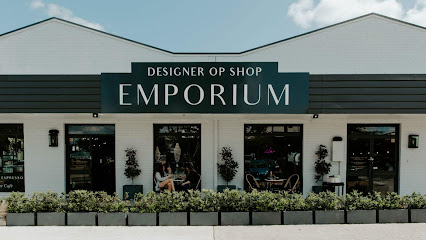
Parliament Shop
Explore the Parliament Shop in Canberra for unique gifts and souvenirs that celebrate Australia's parliamentary heritage and culture.
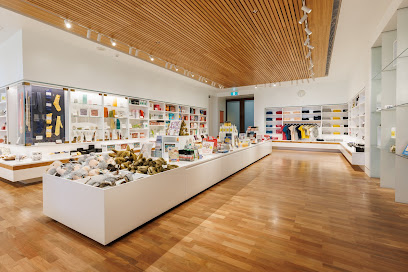
Marilyn on Kennedy
Explore Kingston's vintage charm at Marilyn on Kennedy, where unique clothing and accessories bring the past to life.
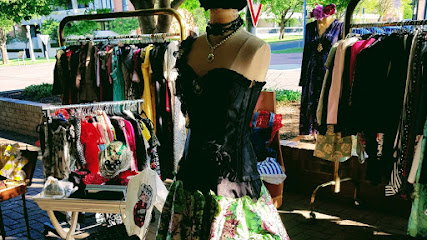
Honeysuckle and Lace
Explore Honeysuckle and Lace in Kingston for a unique women's clothing shopping experience filled with elegance and personalized service.
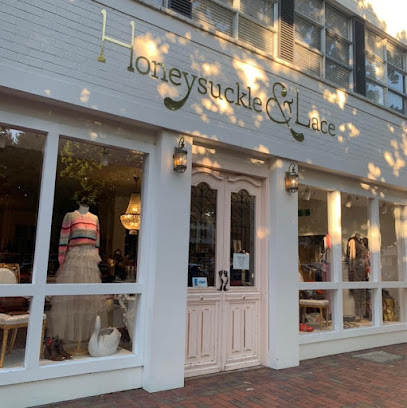
UNIQLO Canberra Centre
Explore UNIQLO Canberra Centre for stylish, affordable fashion for men, women, and children in the vibrant heart of Canberra.
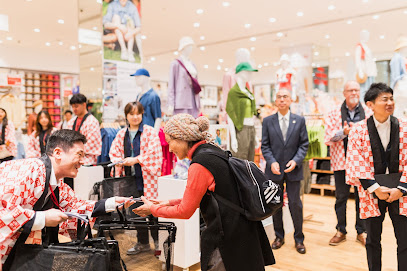
Essential bars & hidden hideouts
King O'Malley's
Discover the heart of Ireland in Canberra at King O'Malley's Irish pub, where hearty food and a lively atmosphere await.
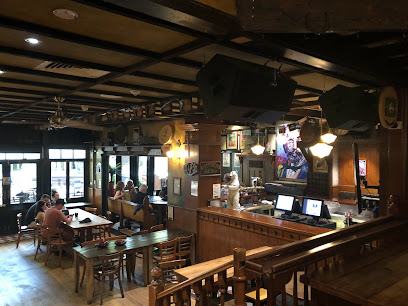
Hopscotch
Discover Hopscotch, a modern bar and grill in Braddon, offering delicious cuisine and vibrant atmosphere for the ultimate dining experience.
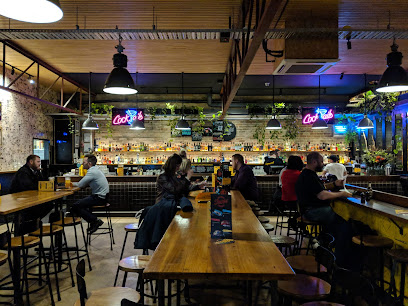
Molly
Discover the vibrant cocktail scene at Molly, Canberra's stylish bar offering expertly crafted drinks in a chic atmosphere.
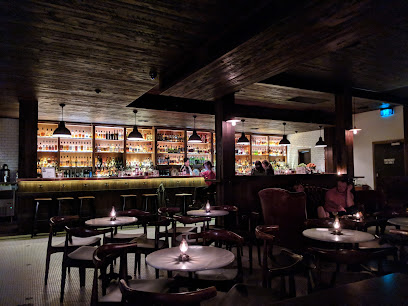
Hippo Co
Experience the vibrant nightlife at Hippo Co, Canberra's premier cocktail bar and jazz club, where handcrafted cocktails and live music create unforgettable moments.
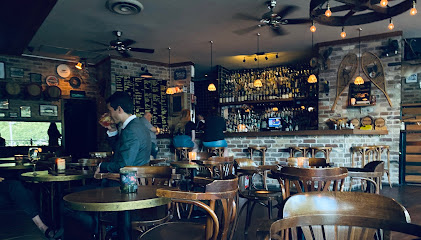
Bar Rochford
Discover the perfect blend of modern Australian cuisine and a vibrant bar scene at Bar Rochford in Canberra.
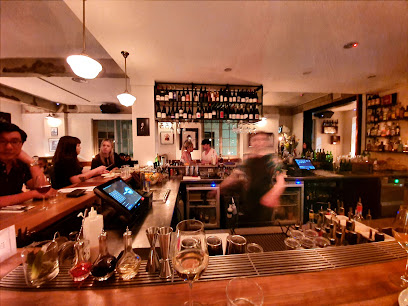
Highball
Discover the vibrant nightlife at Highball, Canberra's premier cocktail bar offering creative drinks and a lively ambiance.
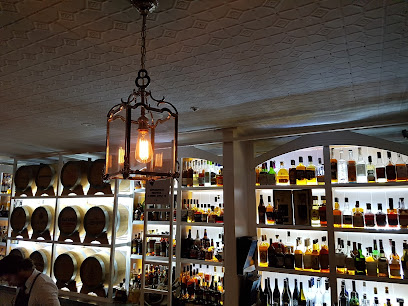
Bar Beirut
Savor authentic Lebanese cuisine and innovative cocktails at Bar Beirut, Canberra's premier Middle Eastern bar and restaurant.
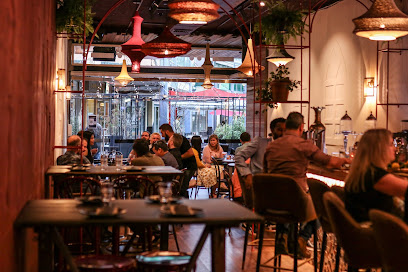
White Rabbit Cocktail Room
Discover the elegance of cocktail culture at White Rabbit Cocktail Room - Canberra's premier destination for exquisite drinks and stylish ambiance.
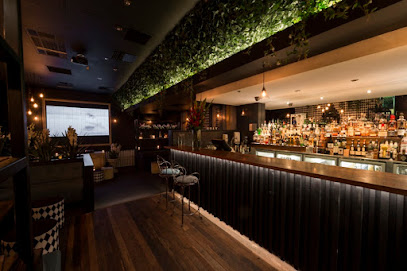
Volstead Repeal
Discover the Prohibition-inspired charm of Volstead Repeal, where exquisite cocktails, gourmet pizzas, and a warm ambiance await you in Braddon.
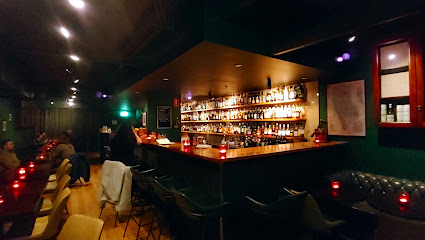
Blackbird bar
Immerse yourself in the vibrant nightlife of Canberra at Blackbird Bar, a lively venue offering unique cocktails and live music entertainment.
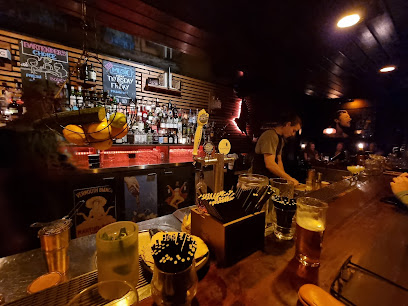
Blue Eyes
Experience the vibrant nightlife of Canberra at Blue Eyes, where expertly crafted cocktails and a lively atmosphere await every visitor.
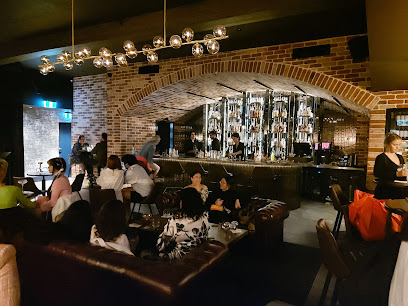
Leyla Bar
Discover Leyla Bar in Barton - a stylish bar offering exquisite cocktails and a vibrant atmosphere for a memorable night out in Canberra.
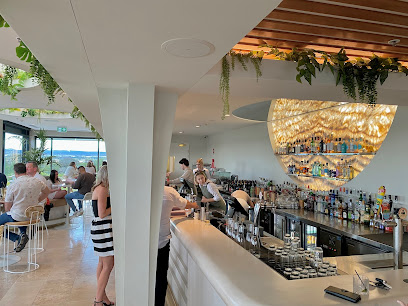
The Howling Moon
Experience breathtaking views and vibrant nightlife at The Howling Moon, Braddon's top bar and event venue, perfect for every occasion.
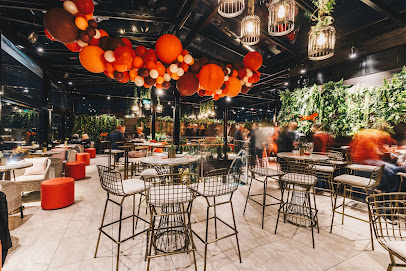
Midnight Bar
Experience the vibrant nightlife at Midnight Bar in Braddon, where expertly crafted cocktails and a chic ambiance await every visitor.
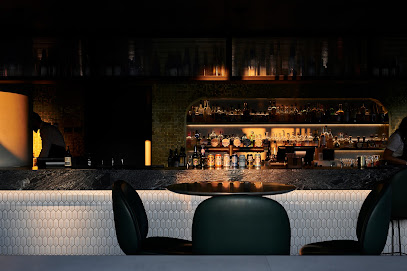
Luna
Experience the vibrant nightlife at Luna, Canberra's premier bar with innovative cocktails and a lively atmosphere for all visitors.
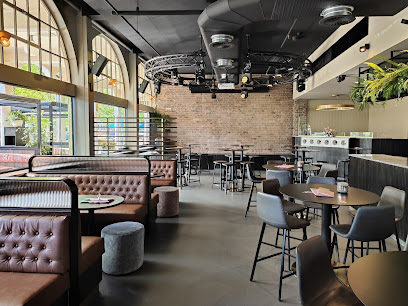
Local Phrases
-
- HelloG'day
[G'day] - GoodbyeCatch ya later
[Catch ya later] - YesYeah
[Yeah] - NoNah
[Nah] - Please/You're welcomeCheers
[Cheers] - Thank youTa
[Ta] - Excuse me/SorrySorry mate
[Sorry mate] - How are you?How ya going?
[How ya going?] - Fine. And you?Not bad. You?
[Not bad. You?] - Do you speak English?Speak English?
[Speak English?] - I don't understandNo idea mate
[No idea mate]
- HelloG'day
-
- I'd like to see the menu, pleaseMenu, ta
[Menu, ta] - I don't eat meatNo meat for me
[No meat for me] - Cheers!Cheers!
[Cheers!] - I would like to pay, pleasePay now, ta
[Pay now, ta]
- I'd like to see the menu, pleaseMenu, ta
-
- Help!Help!
[Help!] - Go away!Piss off!
[Piss off!] - Call the Police!Police!
[Police!] - Call a doctor!Doctor!
[Doctor!] - I'm lostLost mate
[Lost mate] - I'm illFeeling crook
[Feeling crook]
- Help!Help!
-
- I'd like to buy...Buy this...
[Buy this...] - I'm just lookingJust looking
[Just looking] - How much is it?How much?
[How much?] - That's too expensiveToo pricey
[Too pricey] - Can you lower the price?Can you do better?
[Can you do better?]
- I'd like to buy...Buy this...
-
- What time is it?What's the time?
[What's the time?] - It's one o'clockIt's one
[It's one] - Half past (10)Half ten
[Half ten] - MorningMornin'
[Mornin'] - AfternoonArvo
[Arvo] - EveningEvenin'
[Evenin'] - YesterdayYesty
[Yesty] - TodayToday
[Today] - TomorrowTomorra
[Tomorra] - 1One
[One] - 2Two
[Two] - 3Three
[Three] - 4Four
[Four] - 5Five
[Five] - 6Six
[Six] - 7Seven
[Seven] - 8Eight
[Eight] - 9Nine
[Nine] - 10Ten
[Ten]
- What time is it?What's the time?
-
- Where's a/the...?Where's the...?
[Where's the...?] - What's the address?What's the addy?
[What's the addy?] - Can you show me (on the map)?Show me (on the map)?
[Show me (on the map)?] - When's the next (bus)?Next (bus)?
[Next (bus)?] - A ticket (to ....)Ticket (to ....)
[Ticket (to ....)]
- Where's a/the...?Where's the...?
History of Canberra
-
Long before European settlement, the Ngunnawal people inhabited the Canberra region. They lived sustainably off the land, with rich oral traditions and a deep connection to the environment. Evidence of their presence is still visible today in the form of ancient rock art and ceremonial sites.
-
In the 1820s, European explorers like Charles Throsby and Joseph Wild ventured into the Canberra region. Their expeditions opened the area to new settlers, leading to the establishment of pastoral properties.
-
The search for Australia's capital began in 1901, following the federation of the Australian colonies. In 1908, Canberra was chosen as the site for the new capital due to its location between Sydney and Melbourne. The city was officially named Canberra in 1913 by Lady Denman, wife of the then Governor-General.
-
Canberra's design was the result of an international competition won by American architects Walter Burley Griffin and Marion Mahony Griffin in 1912. Their visionary design incorporated natural landscapes, geometric shapes, and grand boulevards. Construction began in 1913 and continued through the 1920s and 1930s.
-
The city saw significant growth during and after World War II. As the Australian government expanded, so too did the need for infrastructure and housing in Canberra. This period saw the development of key institutions like the Australian National University (ANU) and various government departments.
-
In 1911, the area surrounding Canberra was designated the Federal Capital Territory, later renamed the Australian Capital Territory (ACT) in 1938. The ACT was granted self-government in 1988, allowing it to elect its own legislative assembly.
-
Canberra is home to many of Australia's national institutions, including the National Gallery of Australia, the National Museum of Australia, and the Australian War Memorial. These institutions offer deep insights into Australia's history, culture, and artistic achievements.
-
Today, Canberra is a thriving city known for its planned layout, green spaces, and cultural festivals. It continues to grow and evolve, balancing its role as the political heart of Australia with a vibrant community life.
Canberra Essentials
-
Canberra is accessible via Canberra Airport, located about 8 kilometers from the city center. The airport serves both domestic and limited international flights. Alternatively, you can reach Canberra by bus or car from Sydney (around 3 hours) or Melbourne (around 7 hours). Train services also connect Canberra to Sydney, offering a scenic route through the Southern Highlands.
-
Canberra's public transportation system includes buses and a light rail service, primarily operated by Transport Canberra. Taxis and rideshare services like Uber are also available. If you prefer driving, car rentals are available at the airport and throughout the city. Canberra is known for its well-maintained bike paths, making cycling a viable option for getting around.
-
The official currency in Canberra is the Australian Dollar (AUD). Credit and debit cards are widely accepted, and ATMs are readily available. Contactless payment methods like Apple Pay and Google Pay are also commonly used. It is advisable to carry some cash for smaller vendors or in case of emergencies.
-
Canberra is generally a safe city for tourists. However, it's prudent to take standard precautions like avoiding poorly lit areas at night and keeping an eye on your belongings in crowded places. Civic and Braddon are lively areas but can experience higher petty crime rates. Stay vigilant and aware of your surroundings.
-
In case of emergency, dial 000 for police, fire, or medical assistance. Canberra has several hospitals, including The Canberra Hospital and Calvary Public Hospital. Pharmacies are widely available for minor health issues. It is also advisable to have travel insurance that covers medical emergencies.
-
Fashion: Do dress casually but neatly; layers are recommended due to variable weather. Religion: Do respect religious sites and practices, even though Canberra is largely secular. Public Transport: Do tap on and off with your MyWay card, and give up your seat to elderly or disabled passengers. Greetings: Do greet people with a friendly 'Hello' or 'G'day'. Eating & Drinking: Do try local cuisine, including meat pies and Lamingtons. Don't tip excessively; a small tip for great service is appreciated but not mandatory.
-
To experience Canberra like a local, visit the Old Bus Depot Markets on Sundays for unique crafts and food. Explore the Australian National Botanic Gardens and take a walk around Lake Burley Griffin. Enjoy a coffee at a local café in Braddon, and don't miss the views from Mount Ainslie Lookout. Engaging with locals in these settings can provide invaluable insights into Canberra's culture and lifestyle.
Trending Landmark in Canberra
-
National Museum of Australia
-
National Arboretum Canberra
-
National Zoo & Aquarium
-
Old Parliament House
-
Mount Ainslie Lookout
-
Cockington Green Gardens
-
National Capital Exhibition
-
Black Mountain Nature Reserve
-
Parliament House
-
Commonwealth Park
-
Mount Stromlo Observatory
-
Civic Square
-
Mount Taylor Nature Reserve
-
Canberra Walk-In Aviary
-
Lennox Gardens
Nearby Cities to Canberra
-
Things To Do in Sydney
-
Things To Do in Melbourne
-
Things To Do in Byron Bay
-
Things To Do in Hobart
-
Things To Do in Gold Coast
-
Things To Do in Surfers Paradise
-
Things To Do in Brisbane
-
Things To Do in Adelaide
-
Things To Do in Noosa
-
Things To Do in Kangaroo Island
-
Things To Do in Airlie Beach
-
Things To Do in The Whitsundays
-
Things To Do in Phillip Island
-
Things To Do in Kingston
-
Things To Do in Burnt Pine



















